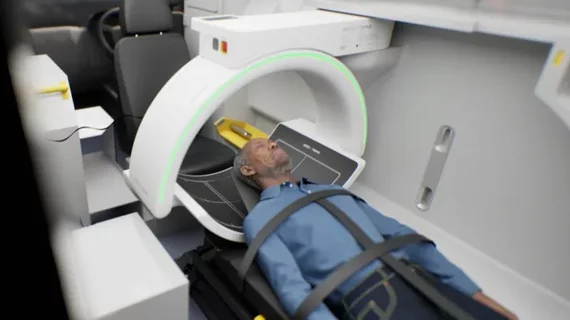Mobile CT stroke detector passes VR simulation, set for field trials
A mobile CT scanner—designed to be used in an ambulance—has passed a virtual reality (VR) simulation test for the diagnosis of strokes. The compact unit is under production but will be capable of producing high-quality images of the head for rapid identification of signs of a stroke, enabling first responders to deploy rapid medical interventions.
The system is developed by X-ray company Micro-X, which received an $8 million grant from the Australian Stroke Alliance as part of a larger project to develop mobile stroke-care units.
The CT unit is foldable and small enough to be stored in a standard ambulance. It will weigh less than 154 pounds (70 kg), and it’s being built using 21 small X-ray tubes made from carbon. Emergency responders will be tasked with performing the scans, and images will be sent to radiologists and other clinicians for immediate review.
Although currently in the prototype phase, Micro-X said in a statement the system is set to begin field trials later this year.

